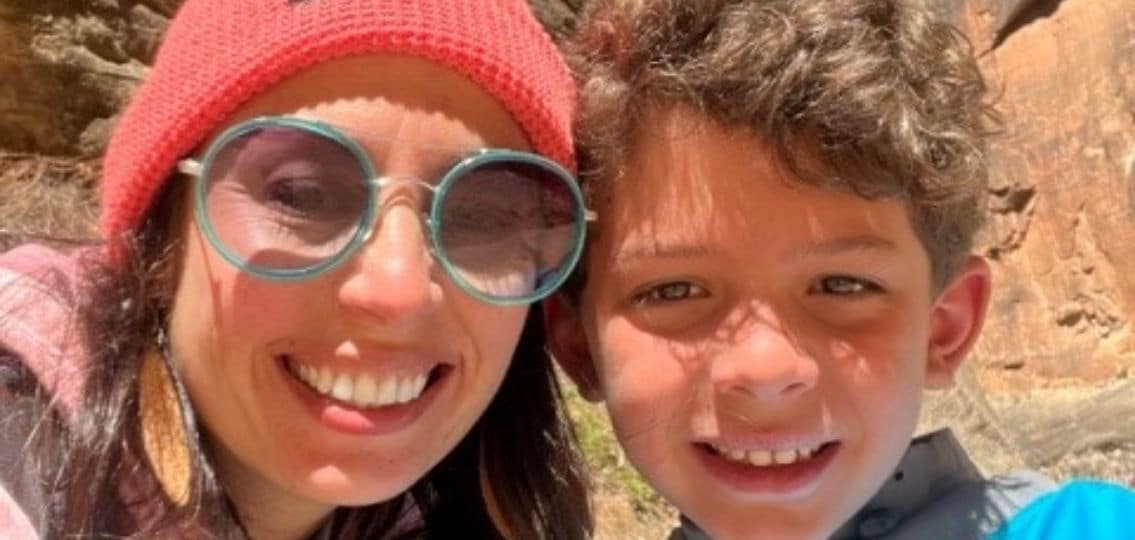[ad_1]

By Angela Anagnost-Repke
When I was a kid, you could find my twin brother and me in the little woods set just beyond our backyard. My mother put an old Little Tikes house there which my brother and I turned into a mud kitchen. We played house for hours on end. My dad planted a garden on the side of the little house. He showed me how to plant, water, and harvest. With my hands in the dirt, we slowed down and connected.
As I grew into a tween, however, I stepped away from nature. I no longer played barefoot in the woods or plucked tomatoes with my dad. Nature just wasn’t appealing to me anymore as I leapt into sports and my social life. In hindsight, though, nature would have given me then, in my busy tween years, what I most needed—time to slow down.
Now I’m a grown-up with my own tween, and his life is filled to overwhelm with the demands of school, athletics, and his blooming social life. Sometimes parenting him is tricky. I know he craves distance and space, but I feel like he’s still too young to let go.
One day I decided to give him what I needed when I was his age. I gave him a time-out in nature, away from the demands of his busy life. As it turned out, it was exactly what he needed, and still needs. Time in nature lays a gentle path toward more freedom.
Nature and Mental Health
In fact, in our family, we all benefit from this time out in nature. Today, for example, our whole family took a mental health day to enjoy it. I was upfront with both of my kids’ teachers about needing the day off, and we took full advantage of it while we frolicked in the woods, enjoying our surroundings and each other’s company.
As often as possible, I try to encourage unstructured time outside. Our family invites other nature-loving families to join our excursions. We may head into the woods or to a pond. We let our tweens beam ahead—yes, even out of sight. They’re yearning for this adventure, after all.
We let our children bound through the woods to observe weird snails, catch frogs, or climb a pine tree. Sometimes my son brings his fishing tackle and heads into a pond or river with his buddy. They don’t bring any fish home, but that’s not why they do it. Just being in the water, without any parents lingering over their conversation and every move gives these tweens the space they crave and need.
When we go on hikes just as a family, I still try to let my tween loose.
I’ve found that nature is a place to allow healthy risk-taking. This past spring break, we headed to a national park. At the end of our hike, we came to a big waterfall where I found my son bouldering up the mountain alongside it. It was tough not to yell, “Be careful! Not too high!” while he took methodical steps, some fast and some slow, over giant rocks. Seeing him make it to the top all by himself? Wow, that was something. Allowing him this small risk paid off when I saw how his sense of pride radiated.
Back home in our neighborhood, I try to give him some freedom, too. My son and his buddies gather big sticks and make giant forts in the woods behind our house. Sometimes I don’t see him for hours.
My son also enjoys outdoor camps and camping with his buddies. He even put “money for camp” on his Christmas list (because they’re not cheap). This summer he’ll be base camping on an island in northern Michigan, courtesy of his uncles who splurged to get him this outdoor adventure. He won’t see Mom, Dad, and Little Sister for seven days—and he can’t wait to go.
Learning to Slow Down
Let me be honest in saying that I don’t do this perfectly. There are times when his behavior is far from perfect and he has to learn from his mistakes. Sometimes I cling on too tightly. I nag him to brush his teeth, finish his homework, and do all of the things. When he’s away, passing by his empty room can feel like torture. But I console myself knowing that giving him this space is both developmentally appropriate and something he needs.
Time out in nature has changed us. It has helped our family be our best selves together. And when we’re alone, it has allowed us to simply be. It’s where my tween feels most comfortable talking about—you know—all of the awkward tween stuff. It’s where he’s gaining independence and building decision-making skills. It’s where our family’s love is growing. It’s the reason why, when we return home at night and I rest my head on the pillow, I inhale a giant breath of gratitude—because these days out in nature are my family’s respite and they overflow with joy.
[ad_2]
Original Source Link

 PARENTING TIPS
PARENTING TIPS PREGNANCY
PREGNANCY BABY CARE
BABY CARE TODDLERS
TODDLERS TEENS
TEENS HEALTH CARE
HEALTH CARE ACTIVITIES & CRAFTS
ACTIVITIES & CRAFTS

